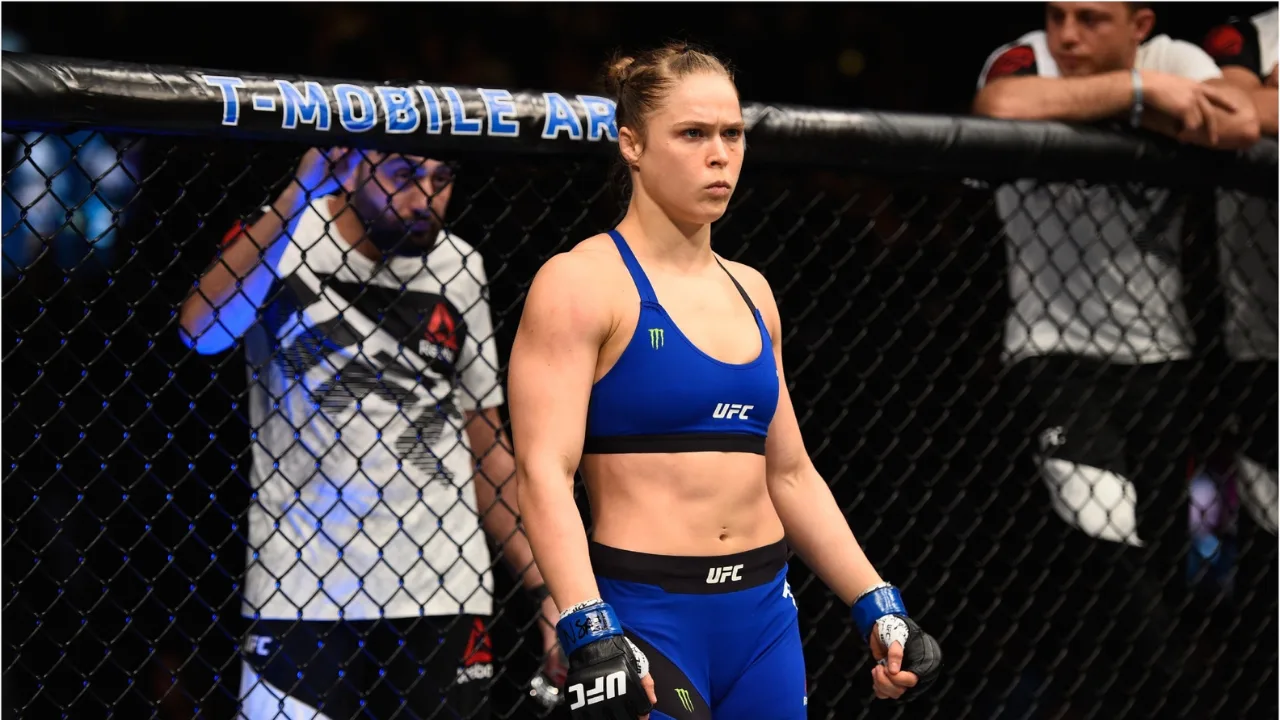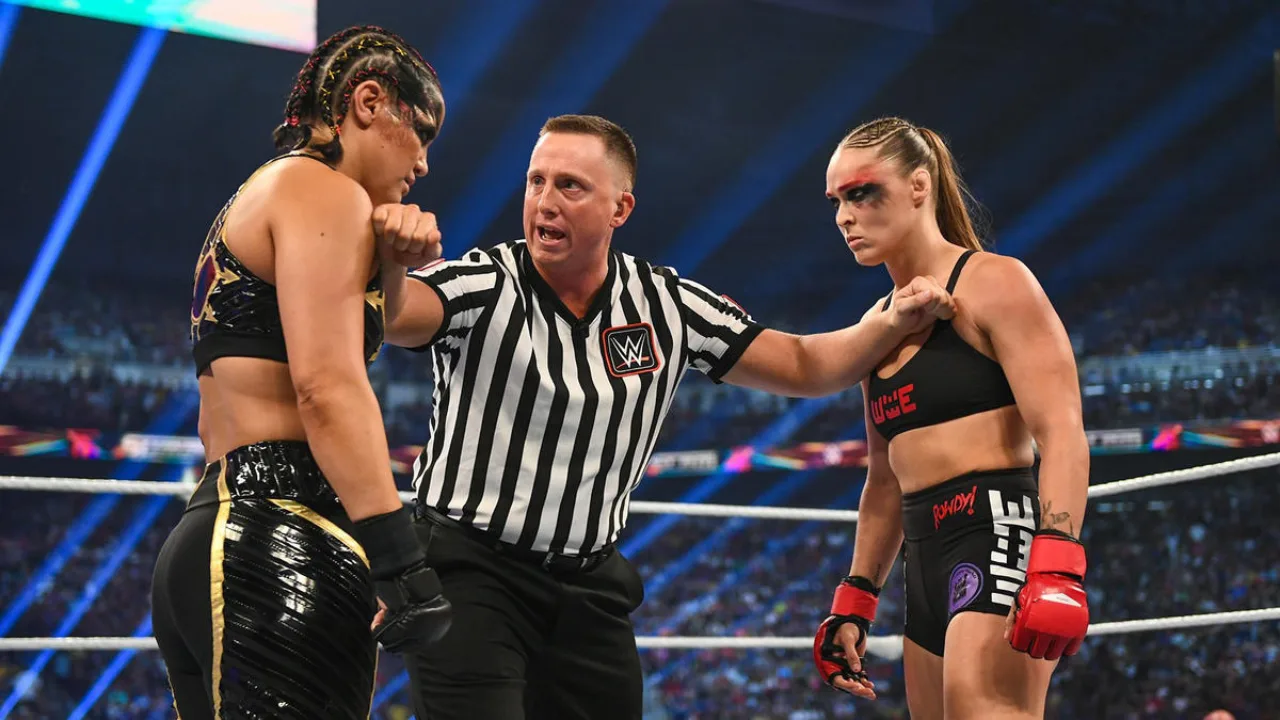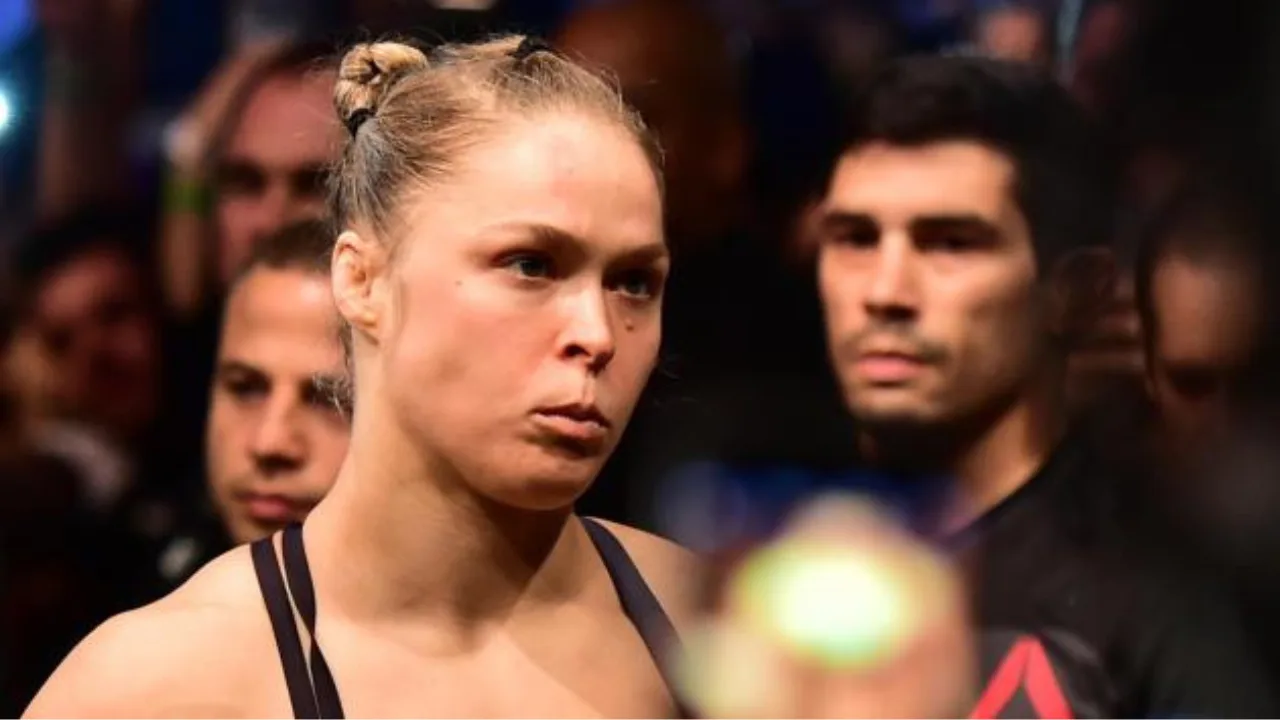Ronda Rousey, one of the most legendary fighters in mixed martial arts (MMA), has stated she is “neurologically unfit to fight at the elite level anymore.” In recent conversations, the former UFC champion referenced the impact of multiple concussions and head injuries, pre-existing before her MMA career.
The injuries have now rendered it impossible to engage in competitive fighting again. Despite multiple rumors suggesting her return to the octagon, the head injuries make it almost impossible for Ronda Rousey to return to UFC.

A career built on dominance and sacrifice
Rousey became a superstar as a natural leader and innovator of women’s MMA. Her reign as champion included a 12-fight win streak, six title defenses, and helped get women’s divisions into the UFC. Rousey’s success prompted UFC President Dana White to change his position and start holding women’s bouts in the promotion. That’s an impressive resume, and it’s about all the positive info worth sharing on Rousey.
The quicker Rousey became a star in women’s sports mixed martial arts the greater the cost to her health. Rousey claimed she had sustained numerous concussions from years of swimming and judo before she ever began the sport of MMA. The concussions and damage to her head became worse while fighting, notably following the first-round knockout losses to Holly Holm in 2015 and Amanda Nunes in 2016.
During an appearance on Chris Van Vliet’s *Insight* podcast “Rowdy” explained about suffering from multiple concussions.
“When I got into MMA, I had already had dozens of concussions that I trained through. It got to a point where lighter and lighter hits were hurting me more and more… I couldn’t take a jab without getting dazed.”
Hidden struggles of Rousey’s career

Rousey indicated that retiring was not an easy decision. Discussing neurological issues in combat sports is taboo, and fighters may have concerns about how they would be judged for weakness or excuses for underperformance. Apart from that, will organizations face consequences for soliciting fighters’ accounts of head injury in the sport.
“As a fighter, you’re not supposed to show any weakness or talk about things like that,” she said.
This prevailing silence culture helped her suffer with the symptoms for years rather than getting help or getting out sooner.
Her most significant loss to Holm was her very first loss; Rousey later disclosed that she fought that match already suffering from a concussion from slipping down some stairs in training. A really devastating head kick she took in that fight ended her champion streak, but was also when Rousey really started figuring out how brain injury can impact someone for life.
Ronda Rousey’s life after UFC

Rousey has retired from MMA (after losing to Nunes in UFC 207) and transitioned to other pursuits, including a successful run in WWE and motherhood. She has been away from WWE since October 2023 and the head injuries might have influenced her ro stay away from the ring. After rumors about her return to the octagon started circulating a through social media, she then quickly put that fantasy away by stating, “It’s not happening.”
Rousey’s legacy as a trailblazer for women in combat sports hasn’t gone anywhere. She was inducted into the UFC Hall of Fame in 2018 and continues to be a positive influence on athletes worldwide. However, her legacy is also a reminder of the physical, as well as the neurological, hazards that are a part of combat sports.
Although fans will miss watching her penguin adventure in the cage or octagon, Rousey’s choice to preserve her health is a reminder of the need to openly talk about brain trauma and fighter safety in high impact sports.

